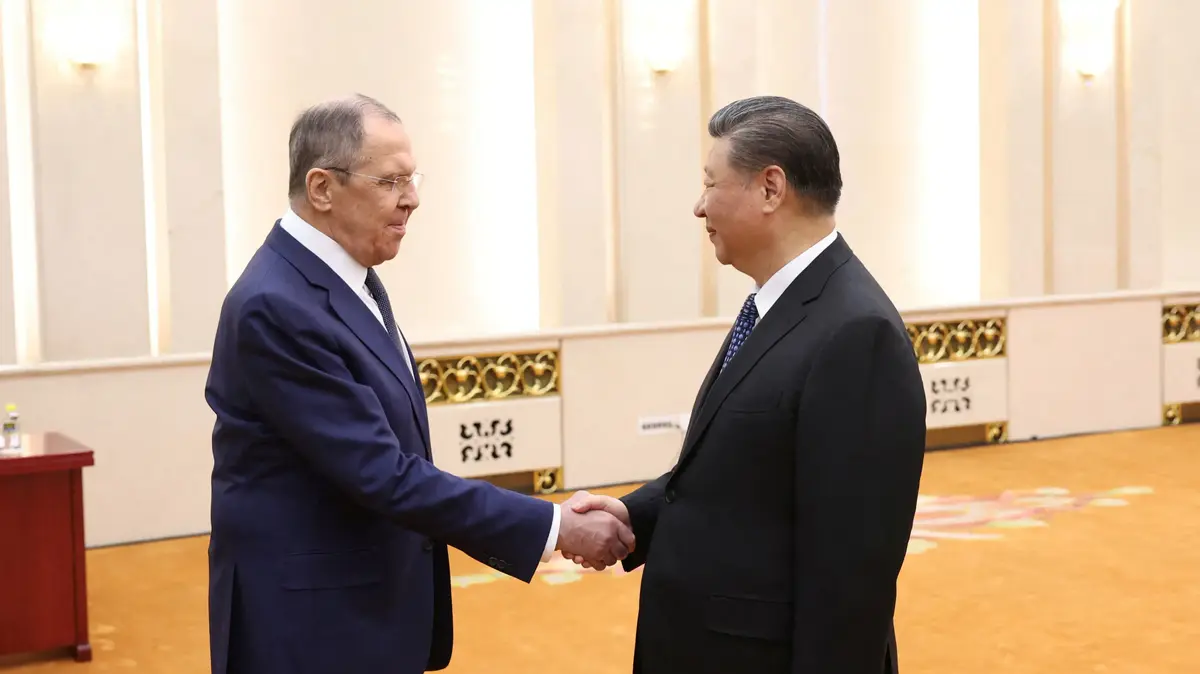The immediate priority in the international policy of the United States is, for obvious reasons, the war in Ukraine, but that does not imply that the Joe Biden Administration will neglect what, in his opinion, continues to be the great military and defense challenge long-term for international stability: China.
And to combat that challenge, Washington plans to take advantage of the alliances forged in recent months against Russia.
This has been underlined by the Secretary of State, Antony Blinken, this Thursday in a long-awaited speech offered in Washington to break down the fundamental points of his Department's policy on the Asian giant, the greatest geostrategic threat to the future of an empire at the crossroads .
"Even as President [Vladimir] Putin's war continues,
“We are not looking for a conflict or a new Cold War.
On the contrary, we are determined to avoid both scenarios”, concluded Blinken, adding that cooperation will continue to be essential on global issues such as “covid or climate change”.
Since arriving at the White House in February 2021, Biden has repeatedly stressed that China is the "greatest geopolitical test of the 21st century."
The war in Ukraine, which this week has been three months, has inevitably distracted attention from its foreign policy, while Washington was placed at the head of an international alliance of military and strategic assistance to Ukraine to stop Putin.
Biden embarked last week on his first trip to Asia, from which he returned on Tuesday, in time to react to the horrific massacre of 19 children (and two teachers) at an elementary school in Uvalde, Texas.
During his trip, the president advanced the idea of a new trade framework to counter China's growing influence in the Indo-Pacific region.
And on his visit to Japan, he angered Beijing when he answered in the affirmative to a reporter's question — apparently caught him off guard — as to whether the United States would intervene “militarily” if China attacked Taiwan.
"The idea that [the island] can be taken by force is not appropriate," said the US president, adding: "We respect the
one China policy and
all the agreements signed from it."
In his speech this Thursday in Washington, Blinken pointed out the aspiration of the United States: "Maintain and modernize the current international order, which made much of our progress possible."
But also update it to "the challenges" present and future, "many of which transcend what the world could have imagined seven decades ago."
And to achieve that goal, the main stone in the path of the United States is China.
“It is the only country that aspires to reform the international order and that has, increasingly, the economic, diplomatic, military and technological power to do so.
Beijing's vision would distance us from the universal values that have sustained much of world progress over the last 75 years," said the Secretary of State, who has defined the relationship between the two powers as one of the "most complex in the world today." ”.
Blinken has clarified that the United States does not seek to prevent China from being the great power that it already is, "nor hinder that, or any other country, from growing its economy or promoting the interests of its people."
“But we will uphold and strengthen international law, agreements, principles, and institutions that maintain peace and security, protect the rights of sovereign peoples and nations, and make it possible for all countries, including the United States and China, to coexist. and cooperate”, he said.
The Secretary of State has accused Beijing of "undermining the laws, agreements, principles and institutions that allowed its success, so that other countries can also benefit from them."
"Under Xi's presidency," he reckons, "the ruling Chinese Communist Party has become more repressive at home and more aggressive abroad," he explained.
One of the biggest challenges of the next decade will be for the diplomacy that Blinken directs from Washington.
“We are ready to increase our direct communication with Beijing on a wide range of issues.
We hope that can happen.
This decade will be decisive.
The actions we take at home and with countries around the world will determine whether our shared vision of the future will become a reality”, said the US Secretary of State, who has repeated three verbs several times: “Invest, align and compete”.
“But even when we are competing fiercely,” he has said, “we will work alongside Beijing where our interests overlap.
We cannot allow the disagreements that divide us to prevent us from advancing the priorities that require us to work together, for the good of our people and the world.”
Since the Administration of George Bush Jr., reorienting US foreign and defense policy towards Asia has been on Washington's compass, although distractions in other places, such as Europe or the Middle East, have not made it easy to concentrate on that task.
Blinken's speech Thursday at George Washington University was originally planned to set the stage for Biden's trip to Asia last week, but was postponed when the secretary of state tested positive for coronavirus.
Follow all the international information on
and
, or in
our weekly newsletter
.










/cloudfront-eu-central-1.images.arcpublishing.com/prisa/KMEYMJKESBAZBE4MRBAM4TGHIQ.jpg)


